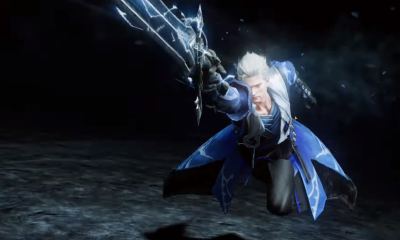Alisa Review (PlayStation 4 & PlayStation 5)

If you had told me twenty-five years ago that video games would eventually go on to break the fourth wall, and then ultimately slip back into their old ways, I’d have doubted you. With that said, you would’ve been right, as some video games did, after numerous revisions, discard the newfound hallmark qualities and revert back to their former selves. Like double denim, or bootcut jeans, for that matter, those shoddy visuals and questionably poor voiceovers soon became all the rage once again in certain corners of the globe, and thus, gave birth to the likes of Alisa, a minor speck of nostalgia fodder, and not to mention a testament to countless developers’ desires to hold a candle to the nineties era of gaming.
Casper Croes’ Alisa is many things: a love letter to the PSX era, sure, but it’s a lot more than that. It’s also a portal—a spiritual time capsule for the senses, if you will—that houses an array of long-lost memories that millions of modern-day gamers might’ve forgotten. In the eyes of Alisa, time hasn’t progressed since 1997, and that’s perfectly acceptable. It’s acceptable because, where there’s a niche, there’s a pocketful of people who’d give an arm and a leg just to feel apart of it. And that’s exactly what Alisa is: an old friend, and one that harnesses all of the finer things that once made up the ‘90s, and with them, summons a rabbit hole into an era that’s barely burning at the wick.
I honestly can’t say where the last twenty-five or so years have gone, but the fact that the PSX fan base is still alive and kicking is a testament to its success, truly. But let’s talk about Alisa—a rabbit hole that I, unsurprisingly, was ecstatic to explore.
Memoirs & Heirlooms
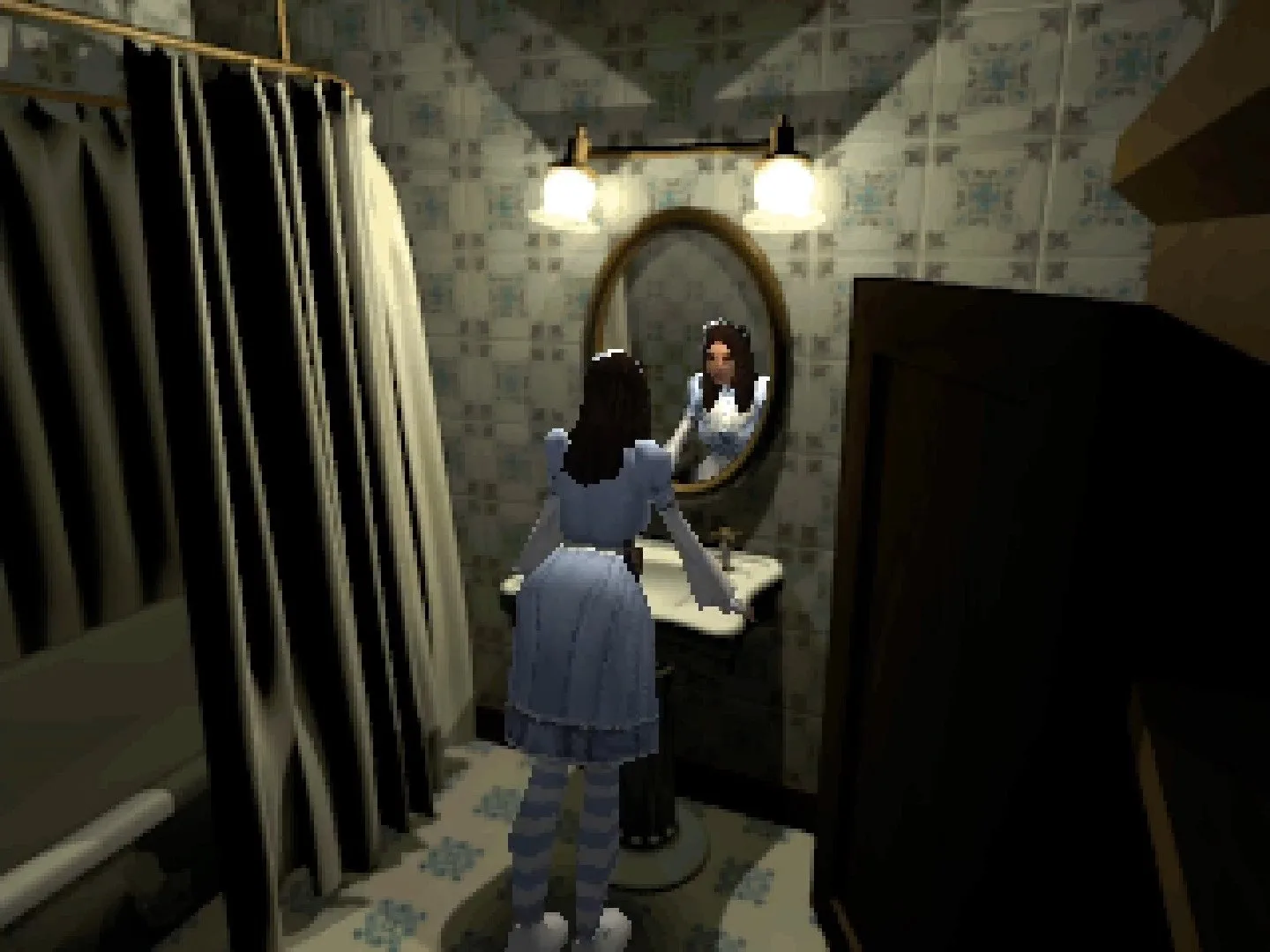
Alisa, for those who happened to skip out on the opportunity to experience it back in 2021, is a third-person survival-horror game, and above all, a homage to the '90s—a revolutionary period from which cult classics, such as Resident Evil and Silent Hill, changed the face of the genre, and in turn, bled light into some of the most popular franchises that we still have today. Alisa, in ways, is the love child of the two aforementioned series — only it never aged beyond its adolescence, and it never took the opportunity to reform itself for the sake of keeping up with the world’s ever-changing demands and expectations. It was born to be in the nineties, and it has no intention of ever leaving it.
If you’re able to remember the traditional tropes of any (and I mean any) horror game from the nineties, then you’ll know where Alisa extracts its materials from. To cut a long story short, it adopts a low poly art style, fixed camera angles, and of course, audio that’s effortlessly shoddy and, dare I say, blissfully nostalgic. It’s all there, and it does all in its power to transport its consumers into the core of a time capsule that’s scarcely short of memoirs and heirlooms. It also plays like a typical PSX title, too, in the case that animations are often a little distorted, and audio quality does often bleed through a little too loudly. But then, these are all intentional things, as the game honestly does aim to emulate a true PSX experience — even at the expense of having fewer well-oiled components in its cabinet.
Dolls For Days
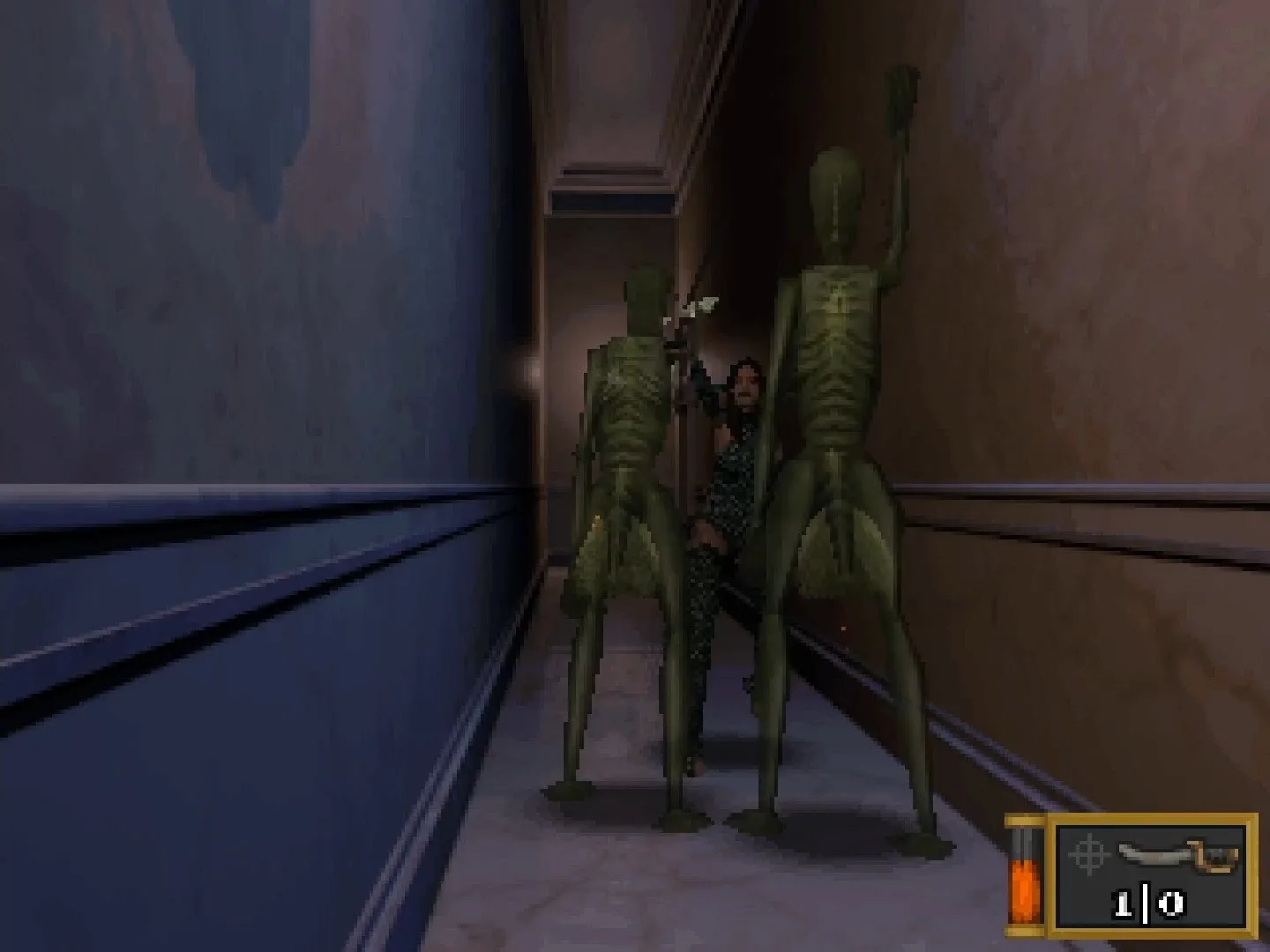
As for that experience in question, Alisa follows the titular protagonist, a young girl who, in a desperate attempt to catch a wanted criminal, winds up in an old Victorian mansion—a hauntingly dark estate in which sentient dolls occupy its each and every room and corridor. It’s your role, while filling the shoes of the Elite Royal Agent, to explore the mansion and solve a litter of riddles and environmental puzzles in order to unearth the secrets of the dolls, and ultimately secure an escape.
Aside from its exclusion of zombies, Alisa isn’t all that different from Resident Evil. In fact, with a manor to explore, a web of puzzles to sift through, and a treasure trove of hidden secrets to unlock, it’s pretty on the nose — and that’s okay. It’s also a lot like American McGee’s Alice: Madness Returns, in some respects, as it more or less borrows several of Alice’s darker features, and not to mention several of the porcelain dolls that make up for the lion’s share of its enemies. But again — fine; imitation is the best form of flattery and all that jazz.
The goal of the game is all rather simple: scoot through a network of rooms, and accrue enough pieces of an overarching puzzle in order to knuckle in on the dolls’ origin. It isn’t the longest story in the world (nothing connected to the PSX era ever usually is), but there’s a good three or four hours of good storytelling here — especially if you’re a sucker for intentionally poor dialogue and shoddy tearaways. But when all’s said and done, that’s sort of the beauty of it.
Short and Sweet
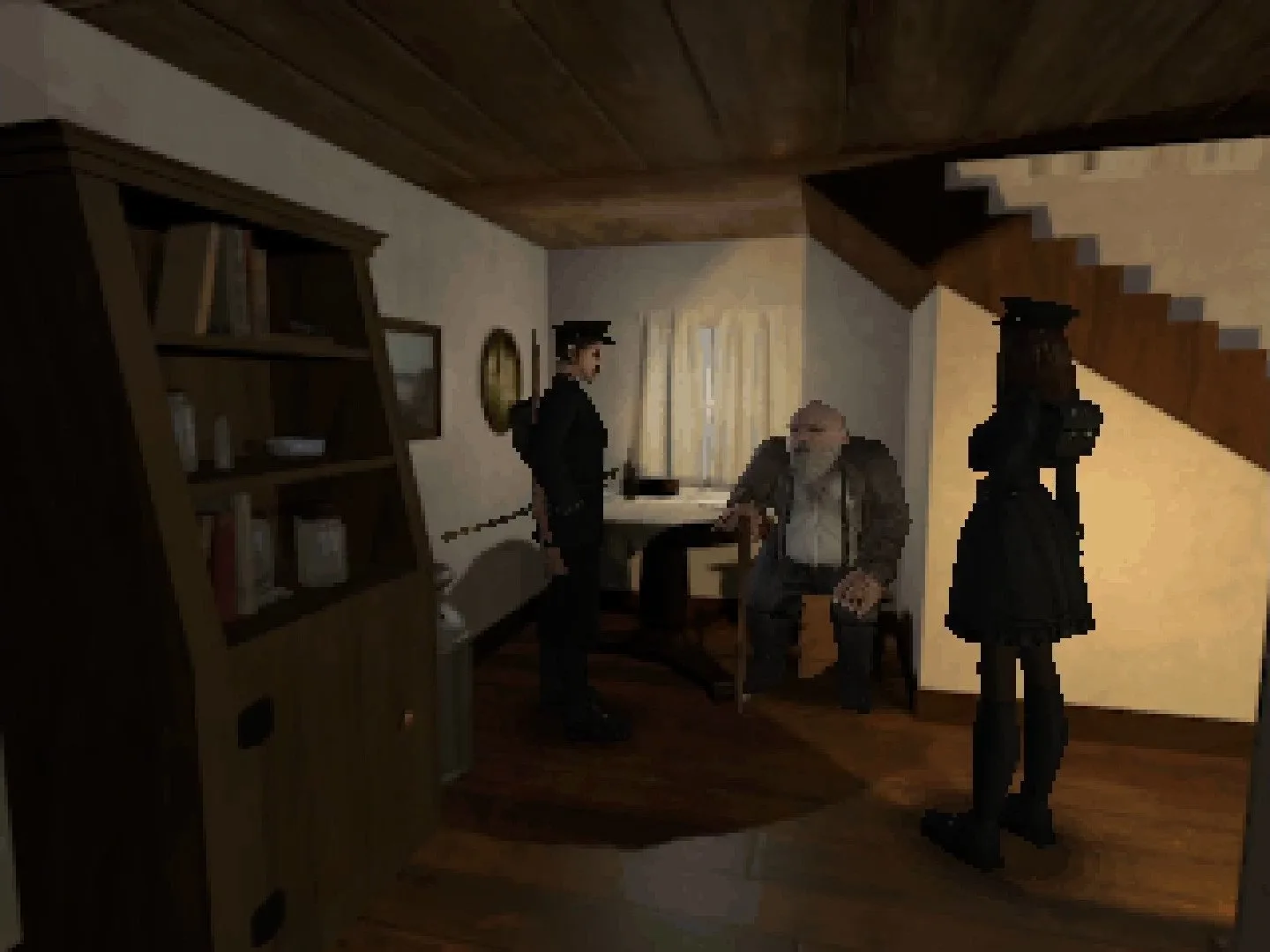
If you’re relatively new to the world of low-poly designs and jagged mechanics, Alisa will no doubt begin to grate on your brain after a short while. Its gameplay isn’t exactly fluid, or at least, not in the same way as a lot of modern games are — but that’s intentional, and true to the source, to say the least. With that, you can expect numerous fixed camera angles, few of which will leave you scratching your head and aimlessly wandering in search of the next clue, and a lot of trial-and-error combat that’s both difficult to come to grips with, and also naturally frustrating.
The good news is, Alisa doesn’t exactly overstay its welcome, as its story is only three hours in length. So, while it does generate a slew of tedious moments and puzzles, it does tie together rather nicely, and ultimately leaves you feeling full, though never quite encumbered. It’s also a game that can be swept under the rug in a single setting, too, which means, if you are on the market for something that’s both short and sweet, then you needn’t look any further than here.
Aside from its camera angles being a bit of a headache even at the best of times, Alisa does manage to conjure an equal amount of interesting moments and genuinely inviting gameplay elements. There are plenty of puzzles to sift through, locations to explore, and a good selection of unique enemies to confront, to list just a few of its signature components. Sure enough, these aren’t exactly fresh-faced things that we’ve hardly seen before, but where it lacks in originality, it most certainly makes up for in value and hearty memorabilia.
Verdict
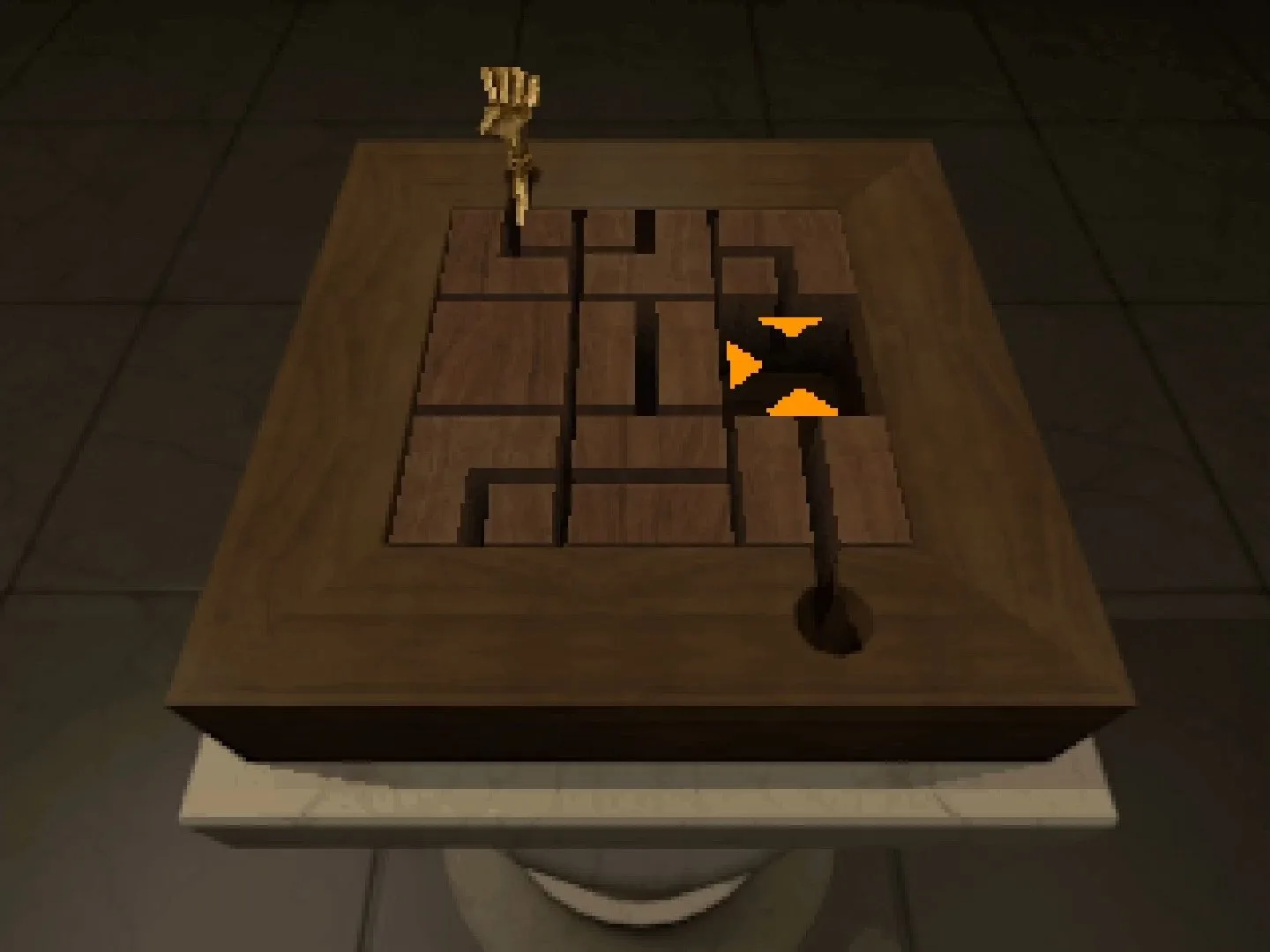
If you can excuse the fact that Alisa isn’t a pioneer of modern technology, but rather a love letter to an era that phased out over two decades ago, then you’ll probably fall head over heels in love with what Casper Croes’ creation serves up on a silver platter. From its low-poly visuals to its nostalgic sound effects, Alisa delivers an entire banquet of 90s fodder for its target demographic — and then some. Blatant connection to Resident Evil cast aside, the game does also possess a genuinely compelling storyline and climax. Granted, it isn’t the most original concept we’ve ever seen, but for the art style and design it swings for, it works.
It becomes abundantly clear right from the get-go that Alisa is a tribute, and as such, a mere emulation of cult classics that washed ashore on the PlayStation One well over two decades ago. Is this a bad thing? Not even in the slightest, though understandably, it also isn’t going to be to everyone’s liking, either. The question you need to answer before making the decision whether or not to play it, really, is this: are the nineties worth returning to?
If you’ve been hunkering for a good old-fashioned expedition that’ll lead you directly down into a timeless hole that’s as equally embellished with original set pieces as familiar trinkets, then there’s no doubt about it — Alisa will provide you with the exact right amount of rope to reach the root. If, however, you’ve since moved on from the nineties, and have no real intention of reliving several of its highlights and the trials and tribulations that came with them, then you might want to give it a miss.
Alisa Review (PlayStation 4 & PlayStation 5)
A Memory Rekindled
Alisa signs, seals, and delivers a compelling homage to some of the most well-respected and ever-evolving franchises of the nineties. It isn’t going to be for everyone, but, for those hunkering for a return trip to the golden age of PSX and back, it’s a nostalgia-driven locomotive you won’t want to miss.










